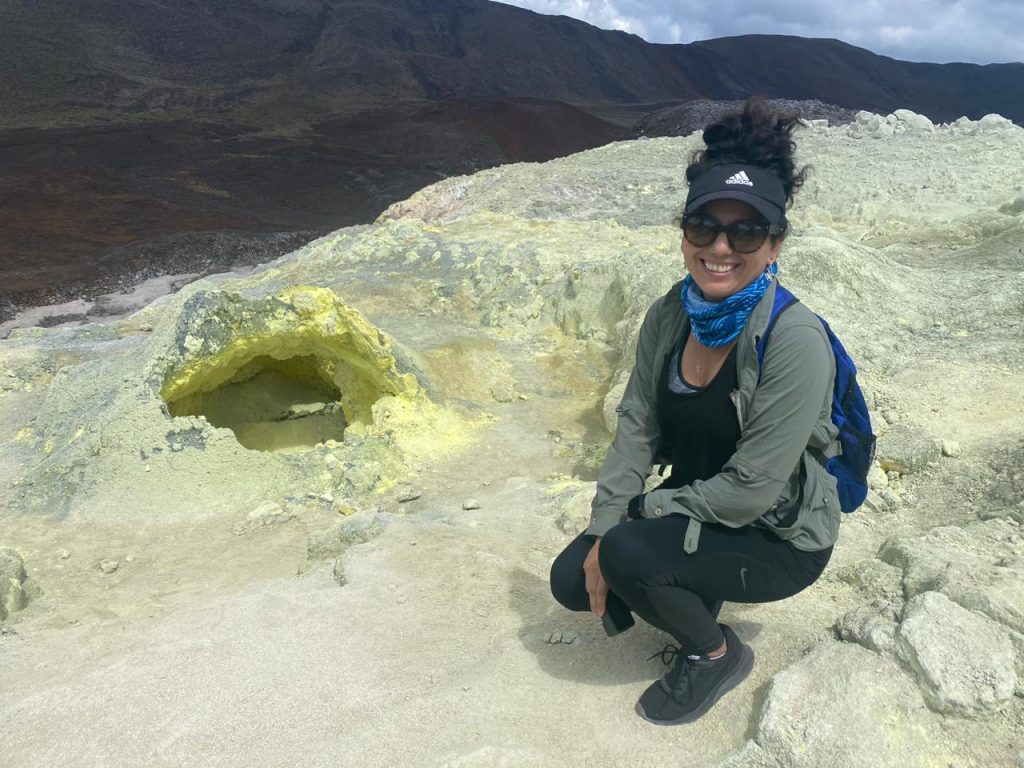March 8 is International Women’s Day, a global day to celebrate the achievements of women everywhere, raise awareness about continued discrimination based on gender, and take action to promote gender parity. The Galapagos Initiative is home to incredible female leaders and scientists; since the Galapagos Science Center (GSC) was founded in 2011, over 50 women have led research across more than 74 research projects. Today, we celebrate International Women’s Day with Cristina Vintimilla, the laboratories manager and marine ecology lab coordinator at the GSC.

Through both her positions at the GSC, Cristina oversees the operation of the GSC labs and preparation for researchers coming to use the facilities. She also contributes to fieldwork on a variety of research projects and works with the science education programs that are a big part of the GSC community outreach program, Connecting with Nature. This program has been reaching communities across San Cristobal, Isabela, and Santa Cruz islands as well as mainland Ecuador since 2019 through activities such as reading sessions with “Marti the hammerhead shark,” which encourages children to learn about conservation while practicing reading skills.
“It warms my heart to play a part in sparking curiosity and enthusiasm in the minds of these budding scientists,” Cristina said.
Her own curiosity about the offerings of the Galapagos is what brought Cristina to the Galapagos in search of furthering her conservation efforts.
“During my academic pursuits, I frequented the Galapagos Islands and developed a profound affection for the region’s biodiversity,” she said. “However, with each visit, I observed noticeable changes—increased hotels, a surge in tourism, and restaurants offering species that lack proper regulation or understanding of their life cycles.”
In 2017, Cristina wrote her master’s thesis on the reproductive cycle of chitons, a type of mollusks, in order to contribute to their conservation. She conducted all of her laboratory research for this paper at the GSC. This work “heightened my interest in being part of the staff and contributing to protecting this lovely place that I have the privilege to call home.”
Working in the Galapagos has also shown Cristina the value of researchers engaging with the local community.
“I firmly hold the conviction that the most effective way to preserve a place or a species is by actively engaging with the local community,” Cristina said. “We scientists can contribute valuable information, but the community has intricate knowledge [about the islands].”
To other young women in the sciences, Cristina urges, “Never give up following your dreams! Cultivate self-confidence, as it will empower you to overcome obstacles and make meaningful contributions…Science is a fascinating world; staying curious will keep you motivated, inspired, and open to new ideas and discoveries.”
By Andy Little ‘24
